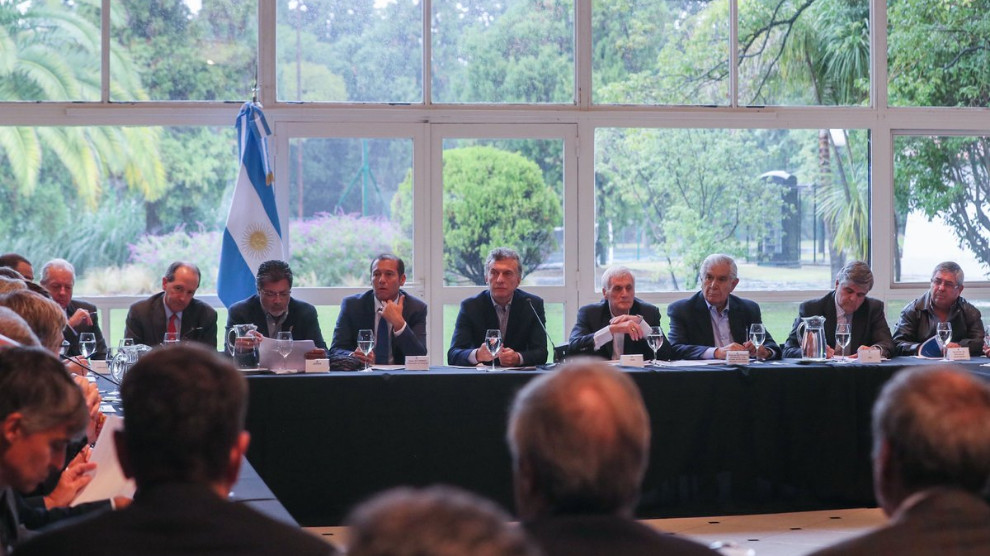The ghost of the financial crisis threatens Argentina
Last week the alarm rang again in the financial system of the South American nation.
Last week the alarm rang again in the financial system of the South American nation.

The country risk jumped to a valuation of 1,000, automatically raising 10% the obtaining of credits, an index only surpassed in the region by Venezuela.
The perception of "mistrust" about the Argentine economy by speculative capitals maintains its foothold in the constant increase in inflation, as well as the certainty of further increases in the price of fuels, which vary depending on the international cost in US dollars.
The three years of the right-wing government led by Mauricio Macri have been marked by a constant increase of unemployment, work precariousness, the increase of poverty and social-labor conflict, while the economic and tax policies have openly benefited the richest sectors of the southern country.
The ghost of a new economic-financial crisis loomed over the weekend as the price of the dollar against the Argentine peso fired high, quoted at 46.30 by 1, a historical figure that supposes a depreciation of the value of the national currency of more than 60% in just a few months.
The so-called "Gentlemen's Pact" to maintain prices, a purely verbal commitment established between the Government and the largest distribution and trade companies, began to break down in practice through increases in retail prices and the hoarding of products, in anticipation of a foreseeable inflationary spiral.
This set of factors has also resulted in economic experts warning about the bulky amount of foreign debt, in dollars, which already reaches 90% of GDP, questioning whether the country can pay next year a total amount of 34,000 million, between capital and interest, agreed with the IMF.
The government decision, approved by the IMF, to increase the amount of dollars destined to maintain an exchange rate without restrictions, which has passed from 50 million to 150 - and that can reach 250 if the dollar exceeds 51 Argentina pesos - has managed to temporarily reduce the upward trend of the US dollar, but according to financial specialists this measure implies the risk of emptying the reserves of federal currencies in a few months and leaving Argentina without any tool to contain a potential "cessation of payments".
The ghost of reliving a traumatic bank crack, something that the country has already suffered several times in the recent past and that still marks the social imaginary, has also been reflected on the political arena, in that the approval of President Macri’s government has suffered a sharp fall accompanied by the constant rise in popularity of former Argentina’s President Cristina Fernandez de Kirchner, leader of the opposition.
If the economic crisis continues to deepen the struggle between the current neoliberal policy of President Macri and "state interventionism", practiced with remarkable success by the former president, will undoubtedly play a key role in the upcoming presidential elections, scheduled for October this year, so that from some sectors of the government itself, the movement Cambiemos (Let's change), has already raised the possibility that Mauricio Macri should leave the presidential candidacy in the hands of the leader of Cambiemos de Buenos Aires. Something already rejected by the president’ spokesperson.